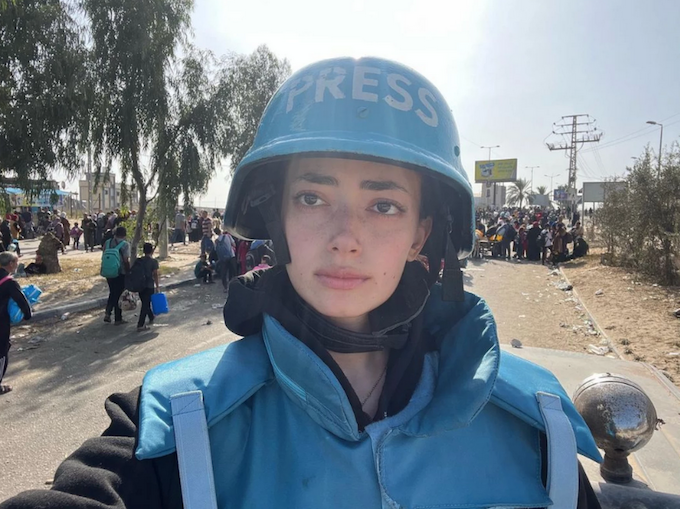
The New Arab
A Palestinian horror film inspired by folklore is moving forward, with journalist and author Plestia Alaqad joining the cast alongside American-born Kuwaiti-Palestinian journalist and media personality Ahmed Shihab-Eldin, according to The Hollywood Reporter.
Titled The Visitor, the feature is written and directed by Palestinian-American filmmaker Rolla Selbak and produced by Black Poppy Productions.
The story follows a young Palestinian man in Jerusalem who must protect his family after a “Ghouleh” — a female demon from local folktales — emerges in his town.
Production is scheduled for a 25-day shoot in Jordan in 2026, with US-based Watermelon Pictures joining as executive producer and financier. The company, which supported From Ground Zero, Palestine’s first Oscars submission, will collaborate with Jordan’s Imaginarium on the production.
Watermelon Pictures’ head of production, Munir Atalla, told The Hollywood Reporter that Selbak’s vision “marks a bold new foray into genre films for Palestinian cinema“.
Alaqad, a Palestinian author, journalist, and poet, gained international attention for her daily social media coverage of Israel’s genocide in Gaza.
Her memoir, The Eyes of Gaza: A Diary of Resilience, was published earlier this year by Pan Macmillan and was released in the United States in September.
Human rights, Arab identity
Shihab-Eldin, an Emmy-nominated journalist and actor of Palestinian descent, is best known for his work on Al Jazeera’s The Stream and various independent media projects focusing on human rights and Arab identity.
Selbak told The Hollywood Reporter that The Visitor “is about erasure, and the deep human need to be seen”, adding that “living under occupation can be scarier than the monsters in our folktales”.
Atalla told The New Arab in June that Watermelon Pictures was founded in response to censorship and the lack of representation facing Palestinian storytellers in global cinema.
“The [Gaza] genocide put into stark relief the extent to which the existing systems we have will never serve us,” he said. “We have to build our own cultural power and financial power to compete and fight in this ideological battle that we’re in.”
He added that the company’s new streaming platform, Watermelon+, was designed as “a living archive of Palestinian cinema”, protecting films from being erased or deplatformed.
Alaqad also told The New Arab earlier this year that her work had sought to preserve Palestinian life and memory beyond the violence.
“The media only shows Gaza when it’s being bombed,” she said. “We’re seeing how Palestinians are getting killed, but we don’t see how Palestinians lived.
“That’s where the dehumanisation comes in.”
Republished from The New Arab.













































